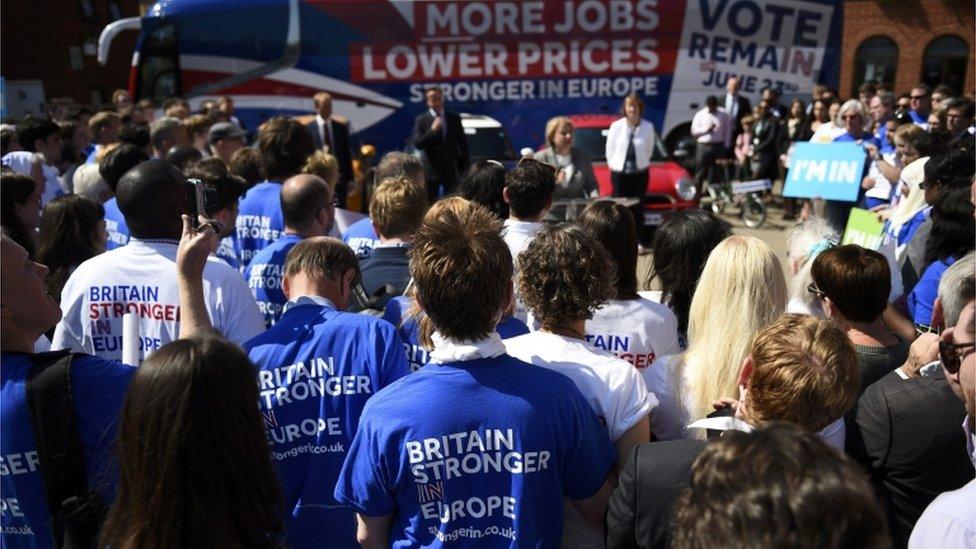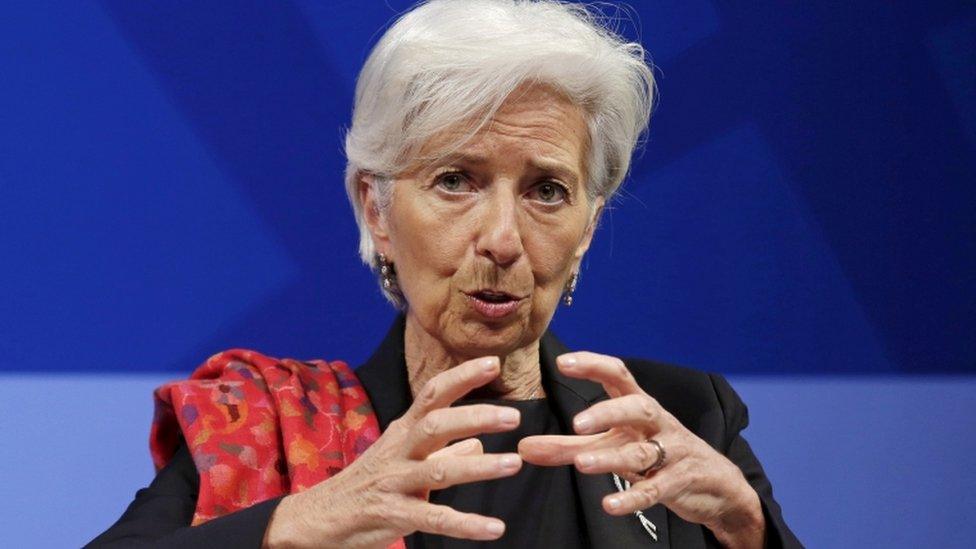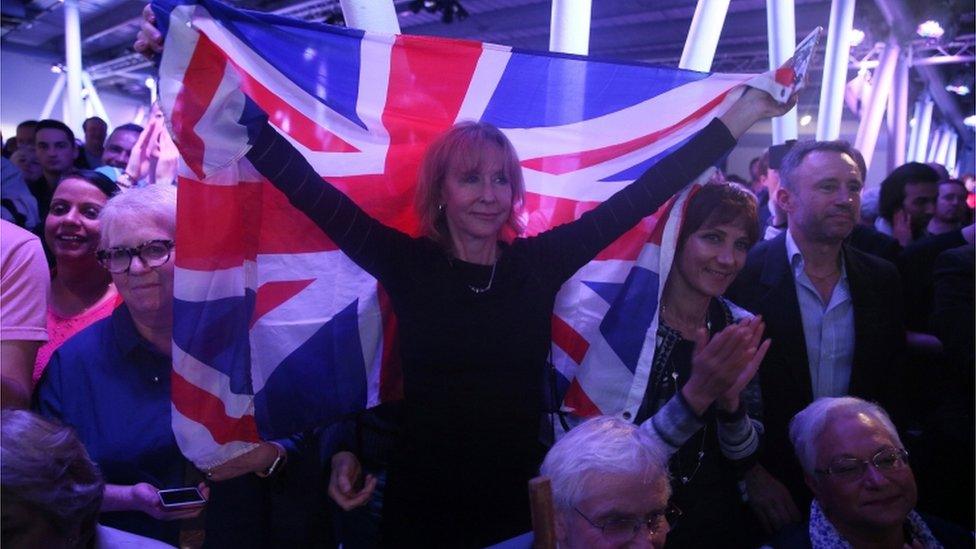EU Referendum: The people v the elites?
- Published

The Remain campaign has been able to call on many political heavyweights
I spoke recently to a politician who is playing a leading role in the campaign to remain in the European Union. He owned up to feeling rather baffled.
"We have wheeled out our biggest guns," he said, "but we didn't get the boost from the polls we expected."
"We have had the president of the United States, the full weight of the IMF, the OECD, the World Trade Organisation, the governor of the Bank of England and the Institute for Fiscal Studies all warning that leaving the EU would damage the British economy - but the polls hardly moved."
One of the unusual features of this referendum is the extent to which Downing Street has mobilised world opinion to its cause.
It is very rare that so many world leaders should speak out about what is a domestic poll. These stellar endorsements have enabled the Remain campaign to turn to the Leave camp and ask, "Who is in your corner?"
But this weight of opinion against the Leave campaign has allowed it to define the battle as "the people versus the elites" - and that is how it would like to frame the debate.
US President Barack Obama: "UK is going to be in the back of the queue"
I recently spent several hours on the streets of Lincoln watching how both camps work, how they pitch their message. The key phrases of the Leave campaign were to promise to "take back control" and "we want our country back".
The Remain campaign warns against wrecking the economy. One of their campaigners repeatedly mentioned to passers-by that we now live in a globalised world and we need to be part of a larger bloc. It was a hard pitch to make.
The appeal of the Leave campaign is to the heart, to the gut. It resonates with those who feel alienated from politics, who feel powerless in the face of global forces like migration.
Different strategies
The two camps appear to be adopting different strategies. The Remain side is focused on mobilising support in areas favourable to them; they are pouring resources into London, into the cities and into Scotland and Northern Ireland.
The Leave camp is much more focused on winning converts to its cause, to sparking a popular movement that will carry it to victory.

IMF Managing Director Christine Lagarde is one of the 'big beasts' in favour of the UK remaining in the European Union
Both sides - to a certain extent - buy into the caricatures of their core support.
The Remain camp believes its strongest backing is cosmopolitan, urban, younger and better educated.
The Leave campaign sees strength in the smaller towns, amongst older voters, amongst those who feel economically vulnerable, who are fearful of their known world disappearing, and those who believe staying in the EU carries risks for the economy.
Politically, Europe is in limbo, on hold until the referendum on 23 June. But Europe's leaders know they have to find answers to an alienation from the European project much wider than just the British detachment from the EU.
Significantly, 53% of French people would like a referendum of their own, 48% of Italians are now in favour of leaving the EU and even 29% of Germans want to leave.

The Leave campaign is appealing to gut emotions
Research from the Pew Research Centre finds that just 51% across 10 EU countries have a favourable view of the European Union. Some 42% want more power returned to their national capitals.
In a moment of candour the President of the European Council Donald Tusk said "it is us who today are responsible", external, warning against pushing "a utopia of Europe without nation states that goes against the grain of history".
The European malaise has many of the same features that are churning up American politics: economic insecurity, the disappearance of many traditional jobs, fears about migration and identity, of communities changing fast
On the streets of the UK, voters struggle to understand the issues, the statistics and the complexity of the European Union. For many, the European Union is a distant project. Many seem confused, uncertain which way to go.
The two campaigns have ideas of how their opponents will play the final two weeks. The Leave campaign is waiting for a fall in sterling, turbulence in the markets which will be seized on by the Remain campaign to demonstrate the risk of leaving.
The Remain campaign believes that its opponents will continue to place immigration at the heart of their case and to seize on any event that indicates that Britain has lost control of its borders.
The Leave campaign will push its own list of questions; what are the economic risks of staying in the EU? Why is discontent with the project so widespread in Europe? How will the rest of Europe react to a British vote to remain? Will it embark on a new push towards closer integration?
The Remain campaign will not just talk of the economic black hole in the Leave case, but it will continue to attack the core appeal of its message.
The former Prime Minister Sir John Major said recently, external that "the underlying mantra of the 'out' campaign is - and I use their words - 'I want my country back.' It is an emotional appeal but a bogus one. If emotion triumphs over reality, we will lose power, prestige, security and some of our future economic well-being."
Behind this intense political fight lie two different views of the world.
The Leave campaign argues that destiny can be reclaimed, that control can be taken back and national sovereignty restored.
The Remain campaign argues that globalisation cannot be reversed, only managed. Just a few days ago Angela Merkel said, "if we reason only in national terms, we will not be able to progress", external.
The result will not just define Britain's future in the world, but will be a key moment in the battle between competing visions of the world.


